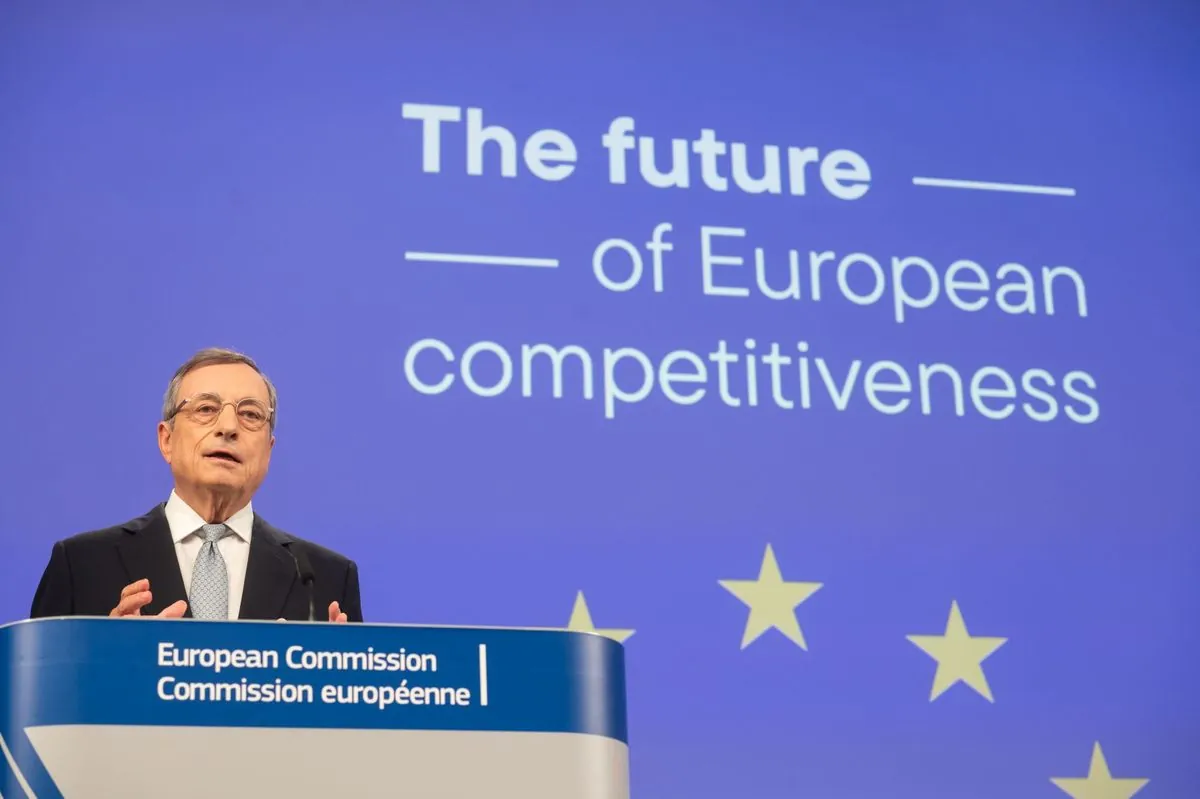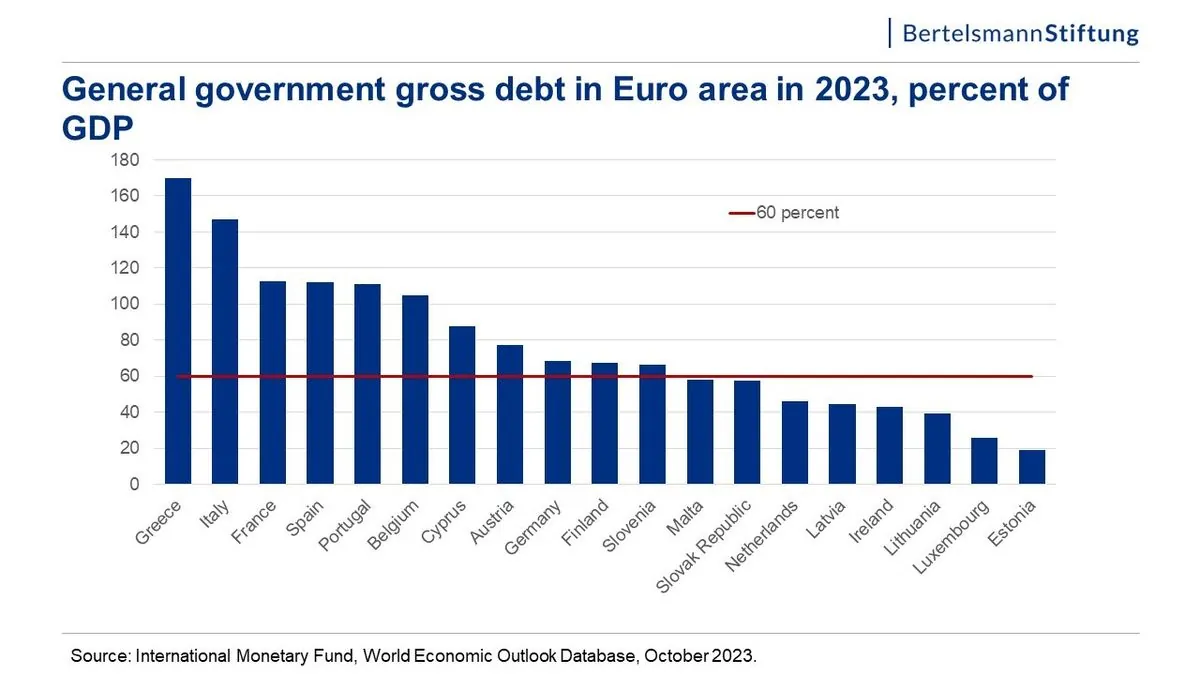Draghi's Vision for EU Economic Revival Faces Hurdles
Mario Draghi's report on boosting European competitiveness calls for major economic restructuring and investment. However, nationalism and financing concerns pose significant challenges to implementation.

In a stark contrast to the gloomy rhetoric surrounding the US economy, many Europeans view America's economic situation with envy. While Republican politicians paint a dire picture of the US economy, the reality across the Atlantic presents a different story. American workers generally enjoy higher wages and more disposable income than their European counterparts, and US companies, particularly in the tech sector, outperform their European rivals.
This disparity has not gone unnoticed by European leaders. Mario Draghi, former Italian Prime Minister and European Central Bank chief, recently released a comprehensive 400-page report addressing the "future of European competitiveness." The document, commissioned by European Commission President Ursula von der Leyen, serves as a blueprint for revitalizing the continent's economy.
Draghi's report calls for a "new industrial strategy for Europe" aimed at boosting productivity, fostering innovation, and narrowing the widening gap with both the United States and China. This ambitious plan would require significant economic restructuring and an annual investment of hundreds of billions of euros from both public and private sectors.
The challenges facing Europe are multifaceted. Demographic trends, security concerns in the wake of Russia's invasion of Ukraine, the need for decarbonization, and the ongoing digital transformation all contribute to the complexity of the situation. Draghi emphasizes the urgency of action, stating, "We have reached the point where, without action, we will have to either compromise our welfare, our environment or our freedom."

Among Draghi's key proposals are measures to encourage tech innovation, streamline regulations, and reform the continent's energy markets. However, implementing these changes may prove difficult due to rising nationalism across Europe. As Martin Wolf, a Financial Times columnist, notes, "Europeans are at risk of forgetting the lessons of their past: only if they act together can they hope to shape their future."
The financing of Draghi's vision presents another significant hurdle. The proposed investment of 800 billion euros annually cannot be generated solely from the private sector, necessitating collective EU fundraising and debt pooling. This approach has already met resistance from fiscally conservative nations like Germany and Sweden.
"On that issue we, along with other countries, are skeptical. Every time you want to accomplish something, it cannot end with us having to take on more debt."
Despite these challenges, many experts argue that Draghi's diagnosis is fundamentally correct. The Center for European Reform warns that "Europe's innovative capacity is declining, compared with other major advanced economies, as is its business dynamism." They caution that policy procrastination could lead to permanent stagnation or worse.
As Europe grapples with these complex issues, the urgency of action becomes increasingly apparent. The slow erosion of economic competitiveness may not be as immediately noticeable as a crisis, but its long-term effects could be equally devastating. The success of Draghi's vision may well determine the future trajectory of the European Union and its place in the global economy.


































